List of the Best Portable Ultrasound Machines for Physical Therapy
Updated: January 24, 2025
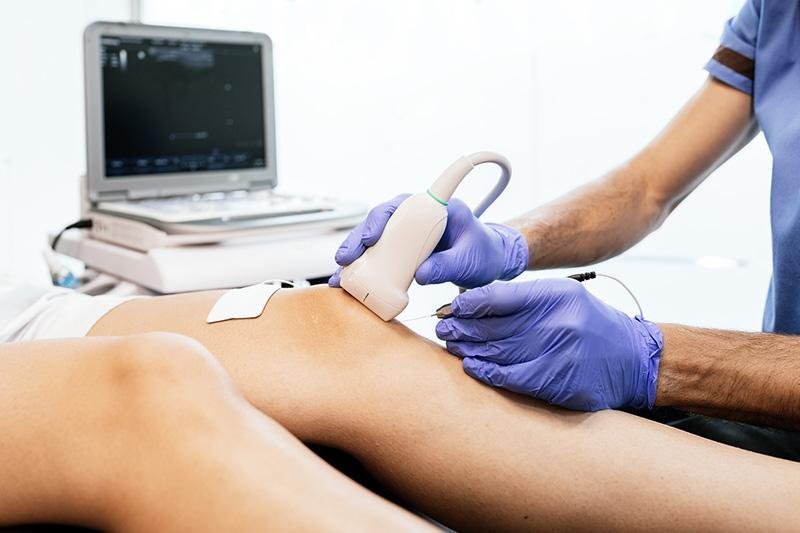
Portable ultrasound machines are compact, easy-to-use devices that provide real-time imaging for medical professionals. They utilize high-frequency sound waves to create detailed images of tissues, muscles, and joints, making them an invaluable tool for various medical specialties. In physical therapy, ultrasound imaging plays a crucial role in diagnosing musculoskeletal conditions, monitoring healing progress, and optimizing treatment plans.
Ultrasound imaging in physical therapy helps enhance diagnostic accuracy, improve patient outcomes, and increase overall treatment effectiveness. Whether for tendon injuries, muscle strains, or ligament sprains, portable ultrasound machines offer convenient, cost-effective solutions for physical therapists who need reliable, on-the-go imaging.
Benefits of the Best Portable Ultrasound Machine for Physical Therapy
- Enhanced Diagnostic Accuracy and Confidence: Portable ultrasound machines allow physical therapists to make real-time evaluations of musculoskeletal structures. This enables a more accurate diagnosis, fostering greater confidence in treatment decisions and reducing the risk of misdiagnosis.
- Improved Patient Outcomes and Treatment Effectiveness: By allowing therapists to visualize the extent of injuries or monitor progress during rehabilitation, ultrasound machines help tailor treatments to each patient’s specific needs. This leads to more effective interventions and faster recovery times.
- Increased Efficiency and Productivity in Clinical Practice: Ultrasound imaging enables therapists to perform in-depth assessments without needing to refer patients for external imaging, which streamlines workflows and reduces treatment delays.
- Cost-Effective Compared to Traditional Imaging Modalities: Unlike traditional imaging techniques like MRI and X-ray, portable ultrasound machines are relatively inexpensive, making them a cost-effective solution for physical therapy clinics, especially when considering the long-term benefits.
- Convenience and Accessibility for Point-of-Care Imaging: Having ultrasound imaging available at the point of care makes it easier for physical therapists to make immediate clinical decisions. This can improve the patient experience by eliminating unnecessary appointments or waiting times.
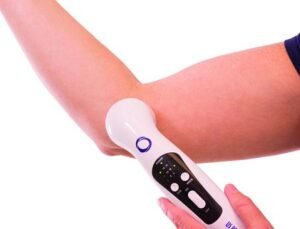
Key Features to Consider
When selecting a portable ultrasound machine for physical therapy, here are the essential features to keep in mind:
- Image Quality and Resolution: A high-resolution image is essential for accurate assessment, particularly for soft tissue injuries. Look for models that offer sharp, clear images that can reveal subtle injuries or abnormalities.
- Probe Selection and Compatibility: Different types of probes, such as linear and curvilinear, are designed for specific types of imaging. Linear probes are ideal for imaging superficial structures, while curvilinear probes are better for deeper tissues. Ensure the machine is compatible with the probes you need for musculoskeletal and orthopedic evaluations.
- User Interface and Software: The machine should have intuitive software that makes it easy to visualize, measure, and interpret musculoskeletal conditions. Look for options that offer specific musculoskeletal and orthopedic imaging modes to enhance the diagnostic process.
- Portability and Battery Life: Since these machines are intended for on-the-go use, portability is key. Choose a model that is lightweight, easy to carry, and has a long battery life to support extended sessions without frequent recharging.
- Safety Features and Regulatory Compliance: Ensure that the ultrasound machine meets safety standards, such as FDA clearance or CE marking. Safety features like automatic shut-off, probe protection, and electrical safety are essential for safe and reliable operation.
- Warranty and Customer Support: Opt for a machine with a robust warranty and reliable customer support to address any concerns or issues that may arise during use.
Top Portable Ultrasound Machines for Physical Therapy
Leading brands in the portable ultrasound market for physical therapy include Dr. Sono, GE, Philips, Mindray, and Sonosite. These brands are trusted for their innovative ultrasound technology, high-quality imaging, and user-friendly devices.
Review of Top Models
Dr. Sono Linear Pro
- Features: The Linear Pro by Dr. Sono offers high-resolution imaging, real-time assessment capabilities, and specialized musculoskeletal software. Its lightweight design makes it an excellent choice for physical therapy clinics looking for portability and ease of use. Dr. Sono ultrasound devices don’t require subscription or membership fees. This is a key advantage compared to other brands.
- Pricing: Around $2,699.
- Customer Reviews: Praised for its compact size, exceptional image clarity, and versatility, the Linear Pro is highly regarded by physical therapists for its ability to diagnose soft tissue injuries accurately.
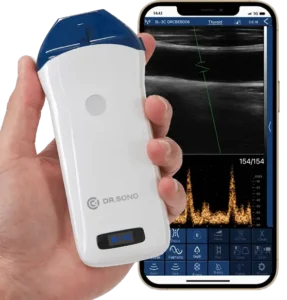
GE Logiq e
- Features: The GE Logiq e is known for its advanced imaging capabilities, providing detailed views of soft tissues, muscles, and joints. Its Doppler functionality is beneficial for assessing blood flow, making it suitable for various musculoskeletal conditions.
- Pricing: Around $20,000.
- Customer Reviews: Highly rated for image quality and portability, this machine is favored by many healthcare professionals for its performance in diverse clinical settings.
Philips Lumify
- Features: The Philips Lumify is a portable ultrasound system that offers excellent image quality and easy integration with mobile devices. It is ideal for physical therapy settings that require quick, point-of-care imaging.
- Pricing: Around $10,000.
- Customer Reviews: Known for its user-friendly interface and portability, the Lumify is particularly favored by physical therapists who need a device that can be easily moved between patient rooms.
Mindray M7
- Features: The Mindray M7 is compact yet powerful, with features designed for high-quality musculoskeletal imaging. It offers an intuitive interface, long battery life, and excellent imaging resolution for diagnosing injuries and guiding rehabilitation.
- Pricing: Around $8,000.
- Customer Reviews: The M7 receives positive feedback for its affordability, image clarity, and ease of use, making it a popular choice among physical therapy professionals.
Sonosite SII
- Features: The Sonosite SII is a rugged, high-performance portable ultrasound machine with excellent imaging capabilities. It’s perfect for physical therapy clinics requiring a durable and reliable device that can handle frequent use.
- Pricing: Around $25,500.
- Customer Reviews: Users appreciate its ease of use, robust performance, and accuracy in diagnosing musculoskeletal injuries.
Comparison of Machines Based on Key Features and User Needs
When selecting a portable ultrasound machine for physical therapy, it’s crucial to evaluate the machines based on key features that align with the needs of your practice. Here’s a comparison of the top brands, with Dr. Sono leading the way:
Dr. Sono Linear Pro (Top Choice)
- Key Features: The Dr. Sono Linear Pro stands out as the premier portable ultrasound machine for physical therapy, offering high-resolution imaging specifically tailored for musculoskeletal applications. It features real-time diagnostic capabilities, specialized software for musculoskeletal and orthopedic conditions, and exceptional portability with a lightweight design.
- Best For: Physical therapy clinics that require a versatile ultrasound system with a focus on musculoskeletal and soft tissue injuries, including tendon injuries, ligament sprains, and joint rehabilitation.
- User Needs: Ideal for clinics that need a compact, easy-to-use, and powerful diagnostic tool. Its portability makes it perfect for both in-office use and mobile practices. The intuitive interface reduces training time, and the machine’s specialized software optimizes treatments, improving patient outcomes.
GE Logiq e
- Key Features: Advanced Doppler functionality, compact design, and high-resolution imaging, suitable for musculoskeletal and soft tissue imaging.
- Best For: Clinics treating a variety of musculoskeletal conditions where comprehensive assessments are needed.
- User Needs: For physical therapists looking for robust imaging capabilities in a portable package.
Philips Lumify
- Key Features: Excellent image quality, seamless integration with mobile devices, and a user-friendly interface.
- Best For: Physical therapists looking for an ultra-portable, easy-to-use device for on-the-go imaging.
- User Needs: Ideal for practitioners who need fast imaging capabilities at the point of care.
Mindray M7
- Key Features: Compact size, reliable imaging, and a user-friendly interface with excellent image clarity.
- Best For: Physical therapy clinics where cost-efficiency is a concern but reliable imaging is still a necessity.
- User Needs: Perfect for clinics treating standard musculoskeletal conditions.
Sonosite SII
- Key Features: Rugged design, customizable settings, and high-quality imaging suited for a wide range of applications.
- Best For: Clinics that need a durable ultrasound machine that can withstand frequent use in both clinical and non-clinical environments.
- User Needs: Excellent for physical therapists who need a machine that can perform in a variety of settings, from outpatient clinics to more challenging environments.
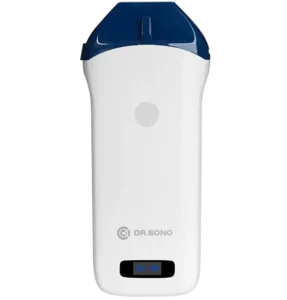
Musculoskeletal and Orthopedic Imaging
- Overview of Techniques: Portable ultrasound machines allow physical therapists to capture dynamic, real-time images of muscles, tendons, ligaments, and joints. These machines utilize high-frequency sound waves to reveal soft tissue injuries, inflammation, and abnormalities.
- Common Injuries and Conditions: Ultrasound imaging is crucial for diagnosing conditions such as tendinopathy, ligament sprains, muscle strains, and joint instability. It helps therapists visualize the severity of these injuries and tailor the most appropriate rehabilitation plan.
- Importance of Ultrasound Imaging: Ultrasound imaging provides immediate feedback on injury healing, allowing therapists to modify treatment protocols in real time. It is a key tool for assessing soft tissue injuries and monitoring progress during recovery.
Safety Precautions and Regulatory Compliance
- Importance of Proper Training and Usage: To ensure accurate results and patient safety, proper training is essential for anyone using a portable ultrasound machine. Professional training on probe handling, imaging techniques, and software utilization is crucial.
- Regulatory Compliance: It’s important to choose a machine that meets FDA clearance or has CE marking to ensure it complies with safety standards and is safe for use in clinical settings.
- Safety Features: Look for ultrasound machines with built-in safety features like automatic shut-off, probe protection, and electrical safety to prevent accidents and ensure long-term reliability.
- Ultrasound Safety Guidelines: Follow the recommended guidelines for using ultrasound to prevent potential risks, such as overexposure or improper use, and ensure optimal patient care.

Additional Costs and Considerations
- Probe and Accessory Costs: Consider the cost of replacement probes and accessories when budgeting for a portable ultrasound machine.
- Software Updates and Subscription Fees: Some machines may require ongoing software updates or subscription fees for additional features and functionality.
- Warranty and Repair Costs: Review the warranty policy and potential repair costs to avoid unexpected expenses.
- Training and Education Costs: Factor in any costs for professional training or education to ensure proper use of the machine.
- Insurance Coverage and Reimbursement: Some insurance policies may cover ultrasound procedures. It’s important to check reimbursement options for physical therapy practices that use ultrasound technology.
Maintenance and Troubleshooting
- Cleaning and Disinfection Procedures: Regular cleaning and disinfection of the ultrasound machine and probes are essential to maintain hygiene and prevent contamination.
- Probe Maintenance and Storage: Proper storage of probes, avoiding rough handling, and following manufacturer guidelines will help prolong the lifespan of the device.
- Troubleshooting Common Issues: Common issues include poor image quality, machine malfunctions, and software glitches. Understanding basic troubleshooting techniques will help resolve these issues quickly and efficiently.
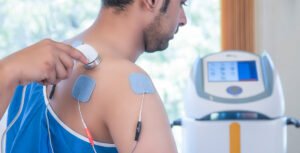
Conclusion
Choosing the best portable ultrasound machine for physical therapy depends on several factors, including image quality, portability, and features. Machines like the Linear Pro by Dr. Sono, GE Logiq e, and Philips Lumify provide excellent value for physical therapists looking for advanced diagnostic tools that enhance patient care. Ensure that you choose a model that aligns with your clinical needs, budget, and the musculoskeletal conditions you frequently treat.
For the best results, consult with healthcare professionals, stay informed about the latest models, and consider further training to maximize the potential of your ultrasound machine.

Article by
Scott Caswell
Scott is a co-founder of PUM and an ultrasound technology expert with a passion for innovation in the medical field. Scott has dedicated his career to advancing portable ultrasound devices, making medical imaging more accessible to professionals around the globe.
When not refining ultrasound devices, he enjoys hiking, experimenting with new recipes, and exploring the latest tech gadgets. Scott is dedicated to making healthcare more accessible and efficient through cutting-edge ultrasound solutions.
Join Our Mailing List & Save!
Enter your email address below to receive exclusive promotions and discounts along with additional product information and tips
Shop Now
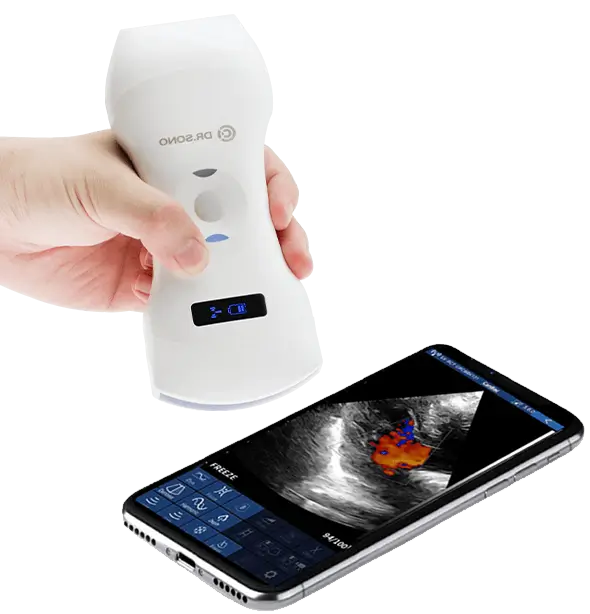

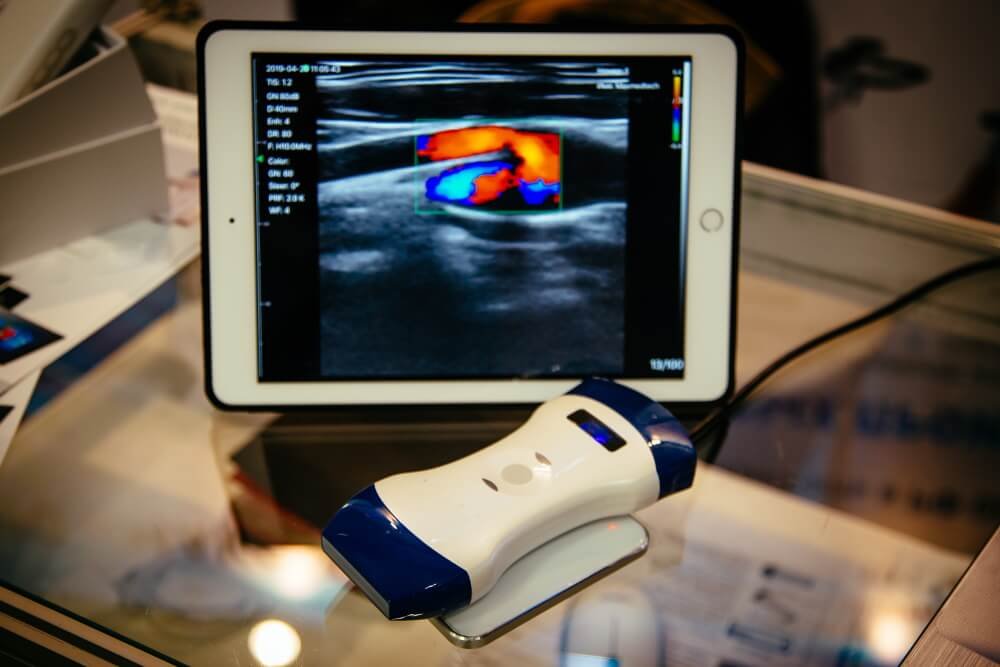

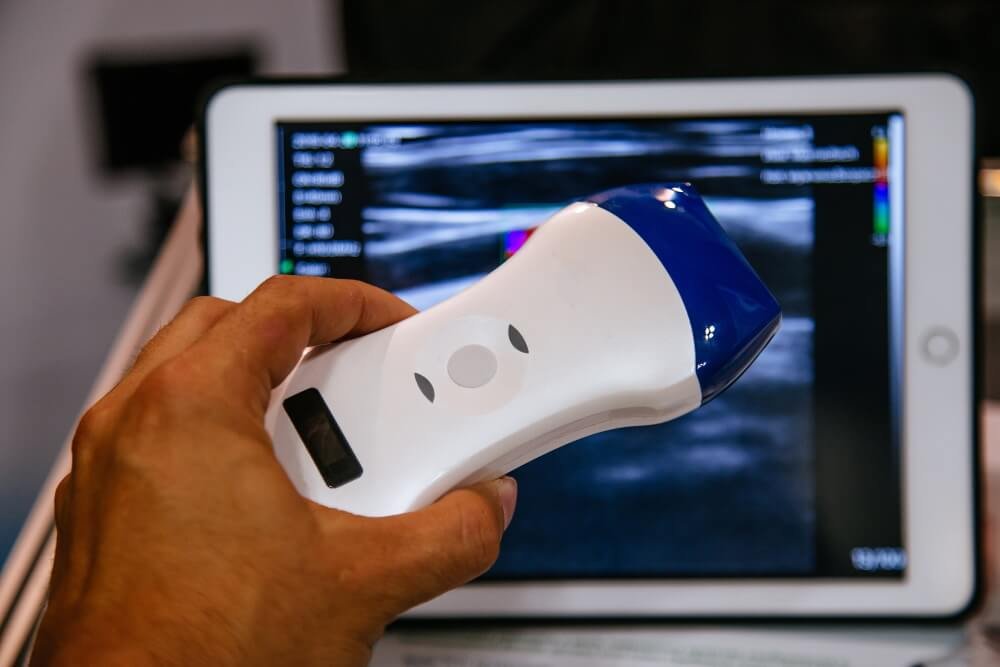
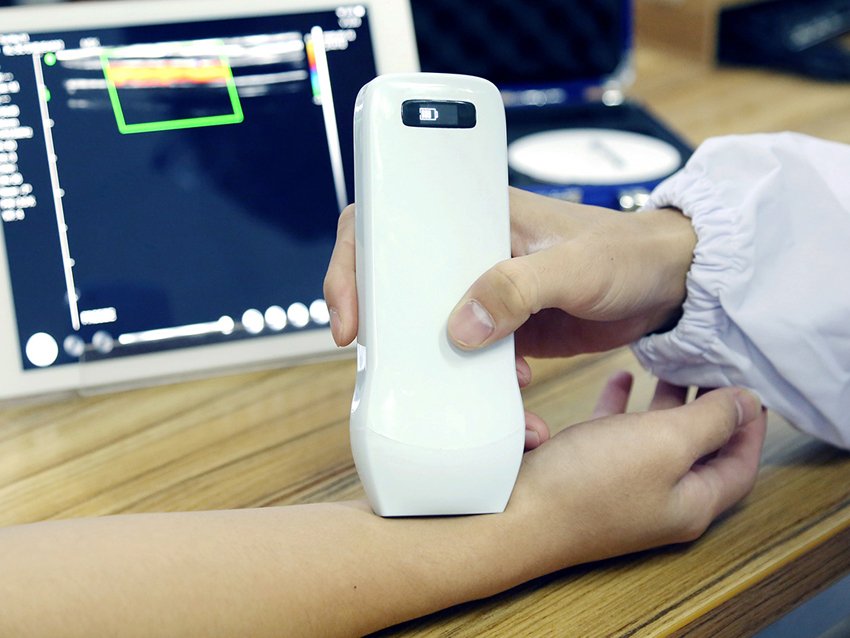
Leave a Reply